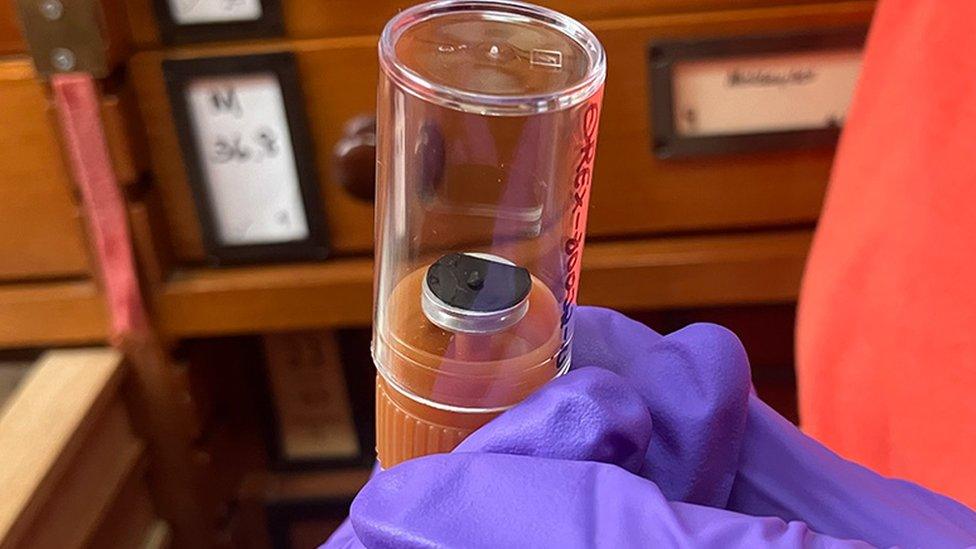Space expert 'gutted' as Moon mission abandoned
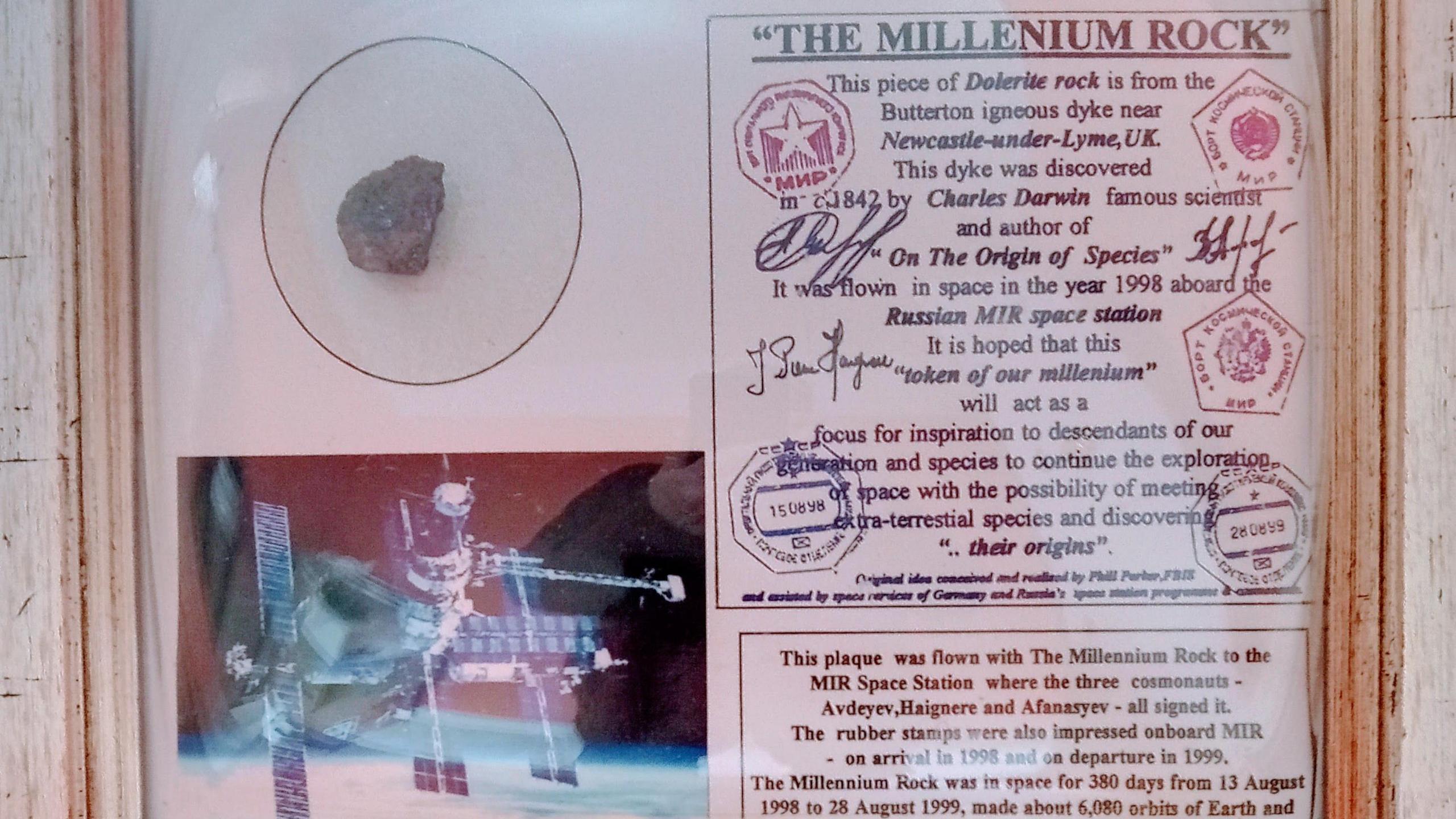
One of the packages being sent to the Moon contains a piece of rock from Butterton
- Published
A Staffordshire space expert has said he was “gutted” to learn that two packages he hoped would land on the Moon will end up being incinerated following a failed lunar mission.
Nevertheless, Phill Parker said he was happy his precious cargo had made it into space and had completed an orbit of the Moon before it crashes into Earth’s atmosphere.
One of the packages contains pieces of rock collected from a volcanic ditch, discovered by Charles Darwin in 1842 at Butterton, Newcastle-under-Lyme.
The other package contains the seeds of a sycamore tree known as the “Moon tree seeds”, which were flown around the Moon aboard Apollo 14 in 1971.
They were mounted into the payload bay of the giant Vulcan rocket which blasted off from Cape Canaveral in Florida on 8 January.
NASA scientists running the project discovered the Peregrine lander which was launched from the rocket had a fuel leak and could no longer complete its mission.
The lander is now on a return journey after going around the Moon, but will burn up in Earth’s atmosphere, rather than complete its intended purpose to study the lunar surface.
The mission is a precursor to the American space agency’s manned Moon missions which are expected to take off within the coming decade.
The Peregrine craft is carrying a number of scientific experiments, including a small lunar rover, as well as the two packages from Staffordshire.
Mr Parker said the spacecraft suffered a valve failure, meaning it was leaking fuel and a Moon landing was no longer possible.
The craft will now reach Earth’s atmosphere on 18 January and will be incinerated when it does, he added.
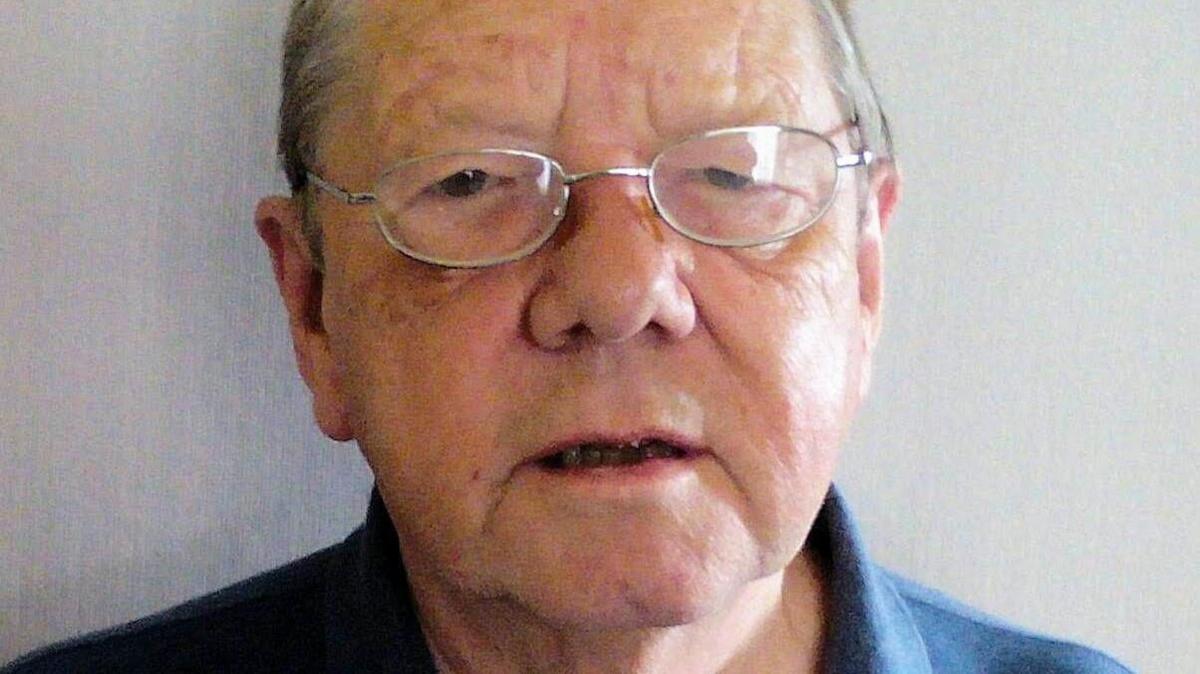
Phill Parker has been a space enthusiast since the 1960s
Mr Parker said: “The two packages I sent – the Darwin rock from Butterton, near Newcastle-under-Lyme, and set of Apollo 14 sycamore tree seeds – will be incinerated along with the space craft when it hits Earth’s upper atmosphere.”
He added: “Luckily I do have other sycamore seeds from the same Apollo flight and with the Darwin rock I have the parent rock, the things which went up were just small chippings.”
The space enthusiast said he was a little disappointed the craft’s mission had not fully been realised, but was nevertheless happy that his packages had made it into space and completed an orbit of the Moon.
He said he would try again if there is an opportunity to send packages on a future space mission.
Follow BBC West Midlands on Facebook, external, X, external, and Instagram, external. Send your story ideas to: newsonline.westmidlands@bbc.co.uk, external
Related topics
Related stories
- Published18 December 2023
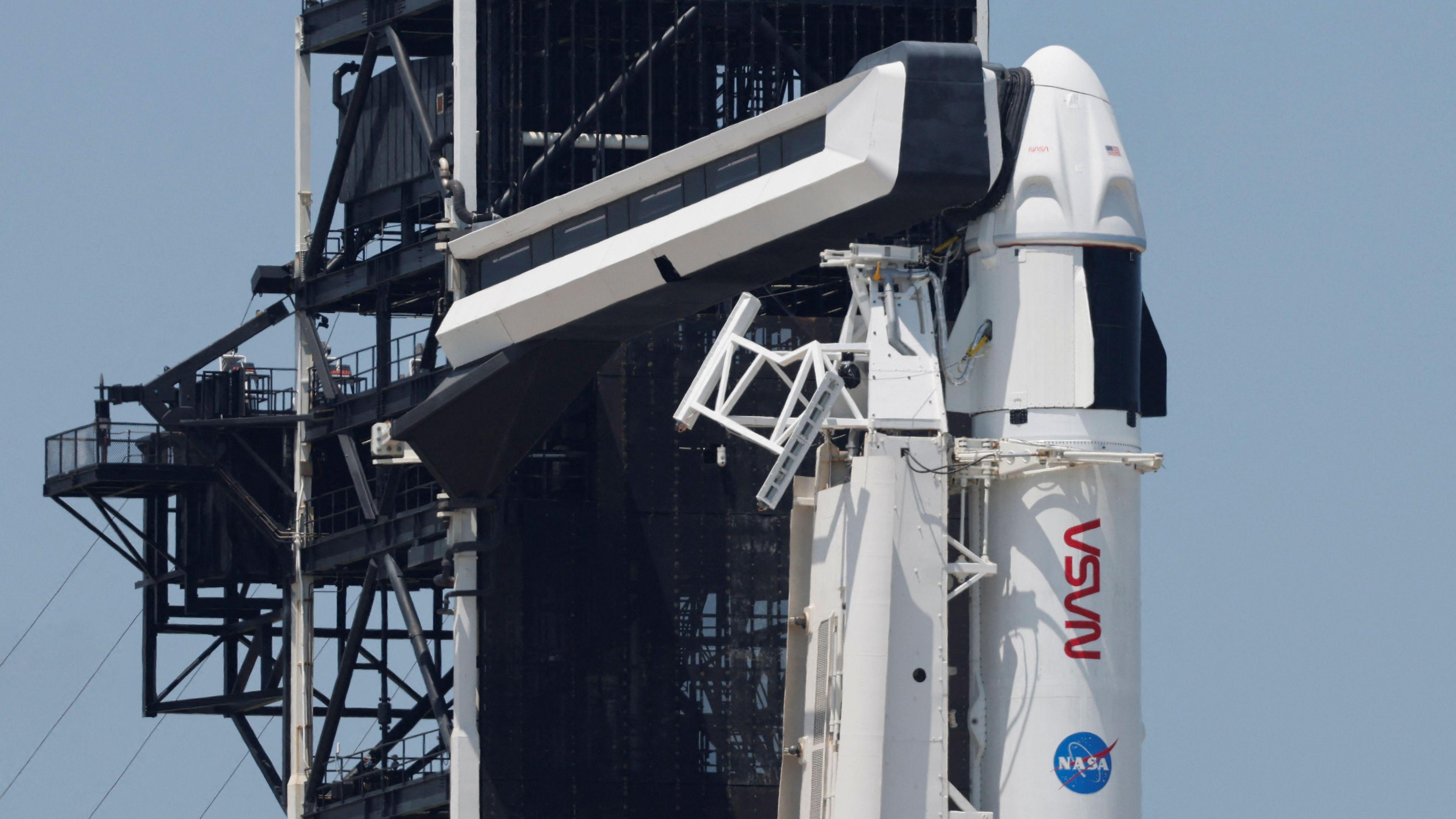
- Published18 November 2023
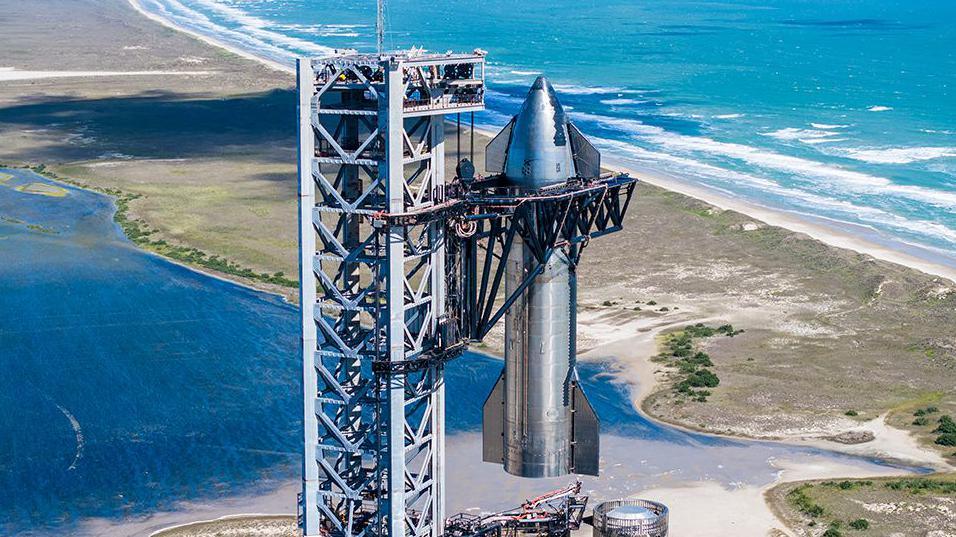
- Published28 November 2023
